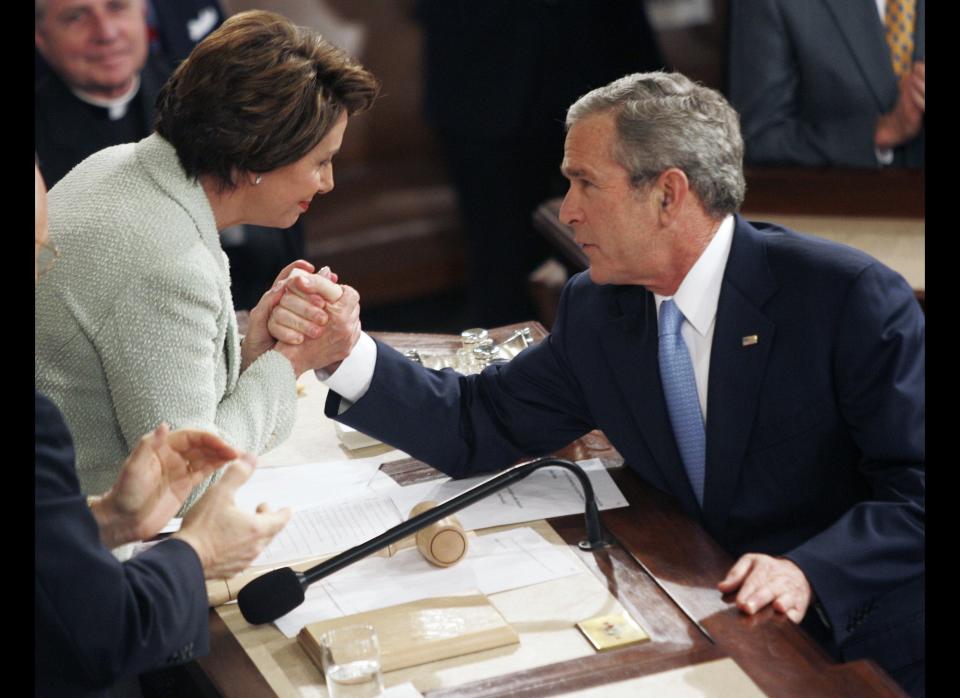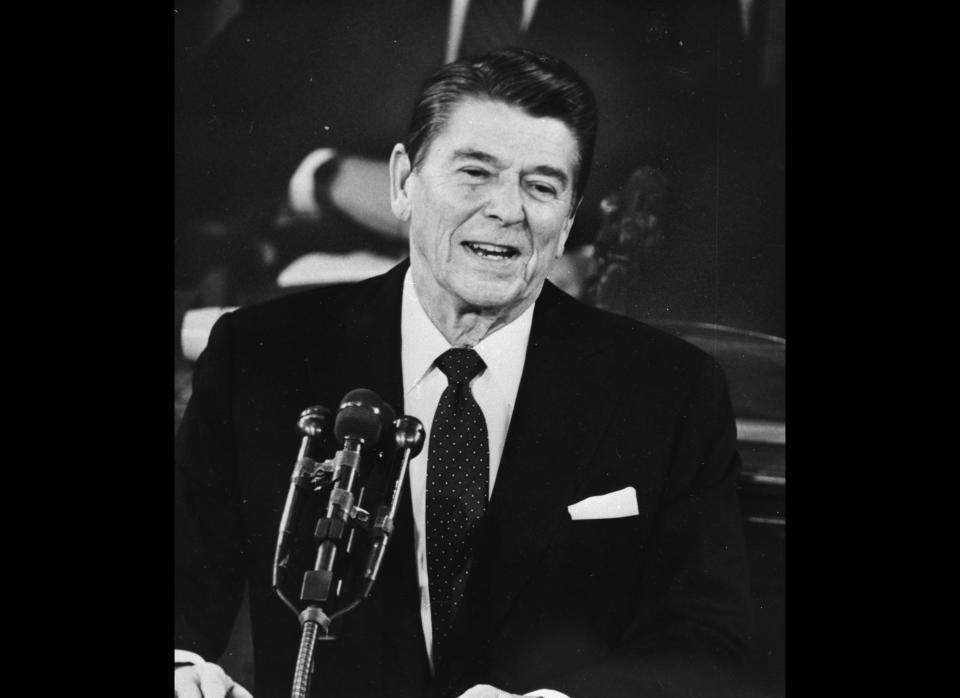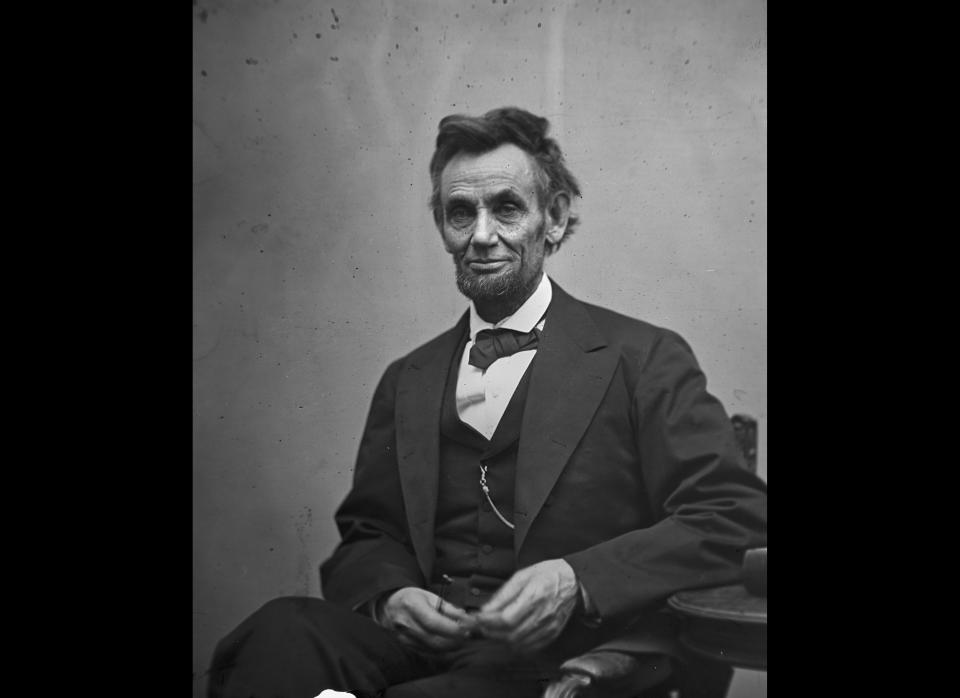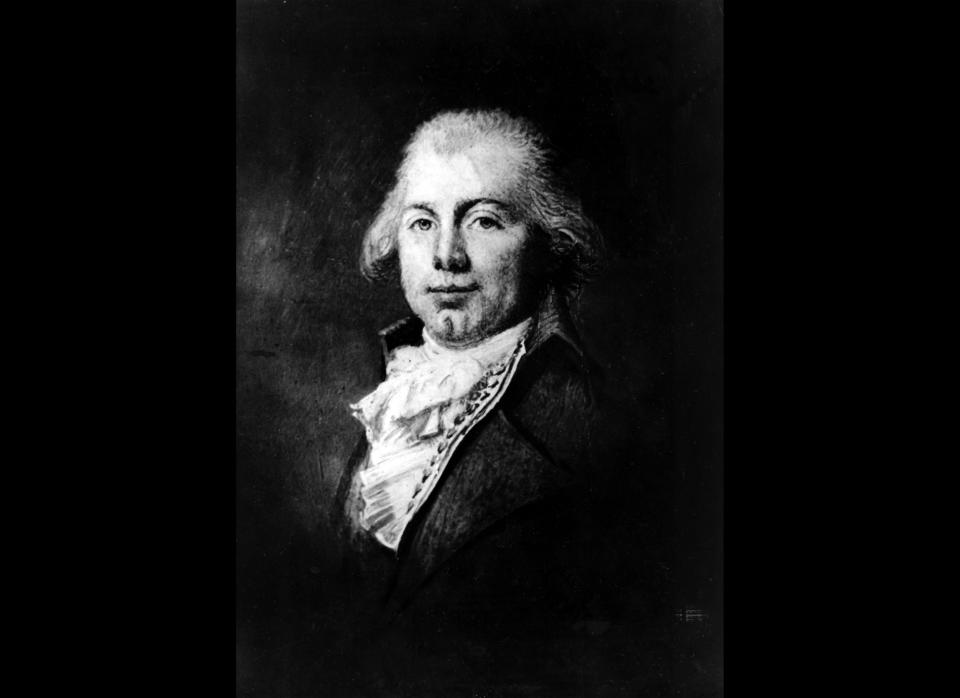Trump's Speech Had 1 Eerie Parallel To Nixon's Final State Of The Union
President Donald Trump’s State of the Union address on Tuesday contained a callback to one delivered by President Richard Nixon when he was under investigation in the Watergate scandal.
“The time has come to bring that investigation and the other investigations of this matter to an end,” Nixon said on Jan. 30, 1974.
Trump on Tuesday also demanded an end to investigations against him and his administration.
“If there is going to be peace and legislation, there cannot be war and investigation,” Trump said. “It just doesn’t work that way.”
NowThis created a mashup of the two speeches:
Trump used the SOTU to call for an end to investigations against him, just like Nixon did months before he resigned in disgrace pic.twitter.com/mFs2PYKr5D
— NowThis (@nowthisnews) February 6, 2019
Less than four months after Nixon’s demand, the House Judiciary Committee began hearings on articles of impeachment against Nixon.
By the end of July 1974, the committee approved the articles of impeachment by a vote of 27-11, with six Republicans joining all of the Democrats on the committee.
A full vote in the House never took place as Nixon announced his resignation on Aug. 8, 1974, effective at noon the following day.
Also on HuffPost
Justice Alito Mouths 'Not True'
![During the 2010 State of the Union, Supreme Court Justice Samuel Alito mouthed the words <a href="http://www.huffingtonpost.com/2010/01/27/alito-not-true_n_439672.html" target="_hplink">"not true,"</a> in response to President Barack Obama's statement that the Court's ruling in the <em>Citizens United</em> case had "open[ed] the floodgates for special interests -- including foreign corporations -- to spend without limit in our elections."](https://s.yimg.com/ny/api/res/1.2/sUufr5Itnj1QAlV3LKzHyQ--/YXBwaWQ9aGlnaGxhbmRlcjt3PTk2MA--/https://img.huffingtonpost.com/asset/5bb8b366250000cf003a4a2b.jpg)
Bush Criticized For Using Term 'Democrat Majority'

Clinton Replaces 'Livable' With 'Liberal'

Last year, the Vice President launched a new effort to make communities more liberal -- livable -- (laughter) -- liberal, I know. (Laughter and applause.) Wait a minute, I've got a punchline now. That's this year's agenda; last year was livable, right? (Laughter.) That's what Senator Lott is going to say in the commentary afterwards. (Laughter.) To make our communities more livable. This is big business. This is a big issue. What does that mean? You ask anybody that lives in an unlivable community, and they'll tell you. They want their kids to grow up next to parks, not parking lots; the parents don't have to spend all their time stalled in traffic when they could be home with their children. Tonight, I ask you to support new funding for the following things, to make American communities for liberal -- livable. (Laughter and applause.) I've done pretty well with this speech, but I can't say that. (Applause.)
Clinton Bypasses Impeachment Troubles

Reagan Leads With George Washington Joke

"President Washington began this tradition in 1790, after reminding the nation that the destiny of self-government and the preservation of the sacred fire of liberty is finally staked on the experiment entrusted to the hands of the American people. "For our friends in the press who place a high premium on accuracy, let me say, I did not actually hear George Washington say that."
Nixon Calls For End Of Watergate Investigation

LBJ Introduces Great Society

Lincoln Foreshadows Emancipation Proclamation

James Monroe Outlines His Eponymous Doctrine

Love HuffPost? Become a founding member of HuffPost Plus today.
This article originally appeared on HuffPost.


